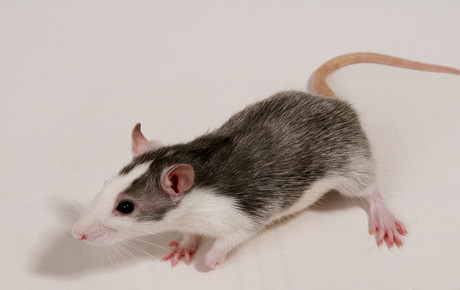Meet the cocaine-resistant mice

Canadian scientists have genetically engineered a mouse that does not become addicted to cocaine, adding to the growing field of evidence that suggests habitual drug use is more a matter of genetics and biochemistry than just poor judgement.
Learning — including learning about the pleasure induced by a stimulant drug — requires a strengthening of certain synapses. A protein called cadherin helps strengthen synapses between neurons — the gaps that electrical impulses must traverse to bring about any action or function controlled by the brain. Professor Shernaz Bamji, from the University of British Columbia (UBC), thus hypothesised that increased levels of cadherin in the brain’s reward circuit would make mice more prone to cocaine addiction.
As it turns out, she was mistaken.
Dr Bamji and her collaborators placed both normal and mutant mice in a three-room cage, before directing them into a distinctly decorated compartment in which to receive a cocaine injection. After several days of receiving cocaine this way, the mice were put into the cage and allowed to spend time in any compartments they preferred. The normal mice almost always gravitated to the cocaine-associated compartment, while the mice with extra cadherin spent half as much time there, indicating that these mice hadn’t formed strong memories of the drug.
Analysing the brain tissue of the genetically engineered mice, the researchers found that the extra cadherin had in fact prevented a type of neurochemical receptor from migrating from the cell’s interior to the synaptic membrane. Without that receptor in place, it’s difficult for a neuron to receive a signal from adjoining neurons — so the synapses don’t strengthen and the pleasurable memory does not ‘stick’.
“Through genetic engineering, we hardwired in place the synapses in the reward circuits of these mice,” said graduate student Andrea Globa, a co-lead author on the study. “By preventing the synapses from strengthening, we prevented the mutant mice from ‘learning’ the memory of cocaine, and thus prevented them from becoming addicted.”

Published in the journal Nature Neuroscience, the team’s research provides an explanation for previous studies showing that people with substance use problems tend to have more genetic mutations associated with cadherin and cell adhesion. Studies such as this one could therefore lead to greater confidence in predicting who is more vulnerable to drug abuse — though unfortunately it is not so easy to augment cadherin levels in humans.
“For normal learning, we need to be able to both weaken and strengthen synapses,” said Dr Bamji. “That plasticity allows for the pruning of some neural pathways and the formation of others, enabling the brain to adapt and to learn. Ideally, we would need to find a molecule that blocks formation of a memory of a drug-induced high, while not interfering with the ability to remember important things.”
Repurposed drugs show promise in heart muscle regeneration
The FDA-approved medications, when given in combination, target two proteins that regulate the...
A pre-emptive approach to treating leukaemia relapse
The monitoring of measurable residual disease (MRD), medication and low-dose chemotherapy is...
Long COVID abnormalities appear to resolve over time
Researchers at UNSW's Kirby Institute have shown that biomarkers in long COVID patients have...







